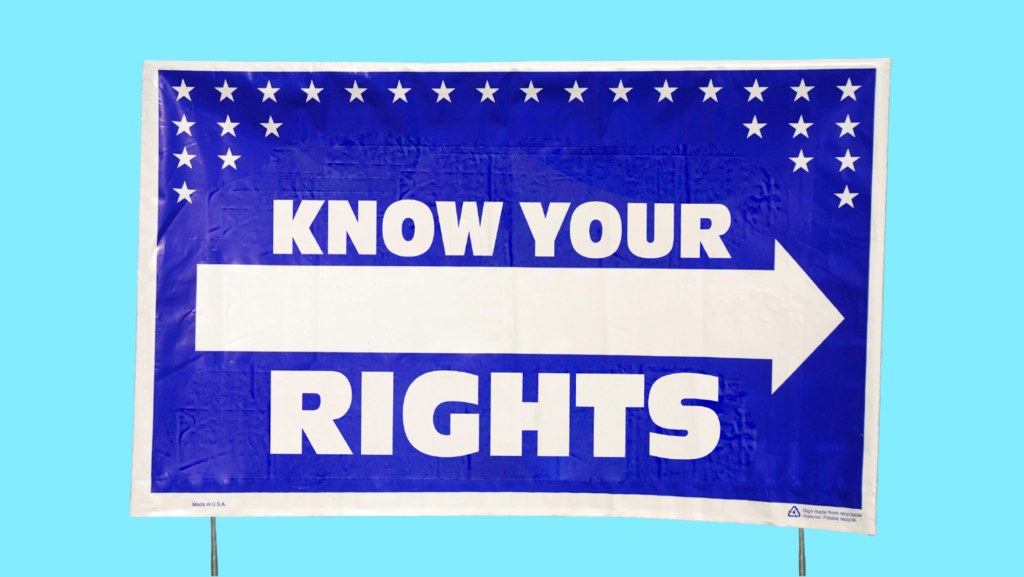You Have Rights as a Voter! Know Them.

If you’re planning to vote in person — either early or on Election Day — then it’s important to understand your voting rights and know how to exercise them at the polls.
Before you head to the polls, be sure to:
1. Check your registration.
Confirm you’re registered to vote and that your registration is active. In 20 states and Washington, D.C., you can register to vote on the same day you cast your ballot. If you haven’t already registered, you can do so here.
2. Confirm your polling place.
Make sure you’re going to the correct polling location so you don’t get stuck filling out a provisional ballot. This is especially important in states that don’t allow out-of-precinct voting, where going to the middle school instead of the high school could be the difference between your ballot counting or not. Even if you voted in the primaries, make sure to double check that your polling place hasn’t moved or closed due to COVID-19.
3. Bring any required documents to the polls.
Your state may require you to bring some form of photo ID or additional documents to show proof of residence. Be sure to check your state’s requirements before you head out to vote. As a reminder, no poll worker or poll monitor can ask you about your citizenship status or require proof of citizenship — this is illegal.
4. Know your rights at the polls:
You have a right to privately cast your ballot without interference.
It is illegal for anyone to stop you from casting your ballot. An attempt to stop you from voting can come in many forms: physically blocking you from the entrance of your polling place, threats or taunts, bribery, impersonating poll workers or telling you that you don’t meet the requirements to cast a ballot. If you feel that someone is trying to prevent you or someone else at your polling location from voting, call the Election Protection Hotline.
You have a right to stay in line.
If you are still waiting in line to vote when the polls close, you still have the right to vote, so do not leave. If anyone tells you otherwise, stay put and call the Election Protection Hotline.
You have a right to receive in-person assistance.
If you’re a voter with a disability or have difficulty speaking, reading or writing in English, you have a right under federal law to receive in-person assistance at the polls. If you need assistance, you can ask anyone to assist you, as long as they’re not your employer. You can also preview your ballot online before you head to the polls to help familiarize yourself with what your ballot looks like.
You have a right to an accessible polling place.
In accordance with federal law, all polling places must be accessible for elderly voters and voters with disabilities. If a polling place is not accessible, voters must be provided with an alternative means of voting. This also includes having access to ADA-compliant voting devices.
You have a right to a paper ballot.
Every election, there are reported instances of electronic voting machines breaking down. If this were to happen at your polling place, you have the right to ask for a paper ballot. Under no circumstance should broken voting machines stop you from voting.
You have a right to a replacement ballot.
If you discover that you made a mistake on your ballot or wish to change your ballot choices, you should immediately ask a poll worker for a new ballot.
In most instances, you have a right to cast a regular ballot — not a provisional ballot.
If someone at the polls questions your eligibility and tries to convince you to vote with a provisional ballot, you should first ask why you’re not eligible to cast a regular ballot. This is where confirming that you’re registered and going to the correct polling place is of critical importance. You can call one of the Election Protection Hotlines if you know you are at the right polling place but are still being questioned. Only vote a provisional ballot if you absolutely have to and, if you do, make sure to ask for information on how you can confirm your ballot was counted.
If you or someone you know is planning to vote in person, be prepared and know your rights. We all have the right to be heard in November.